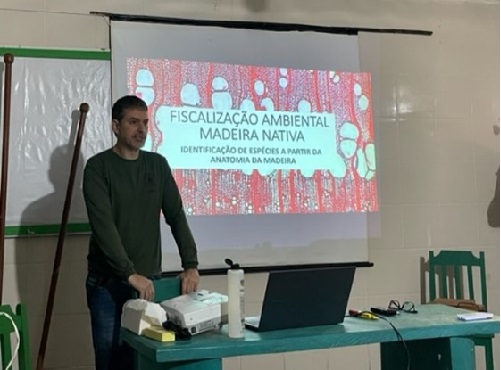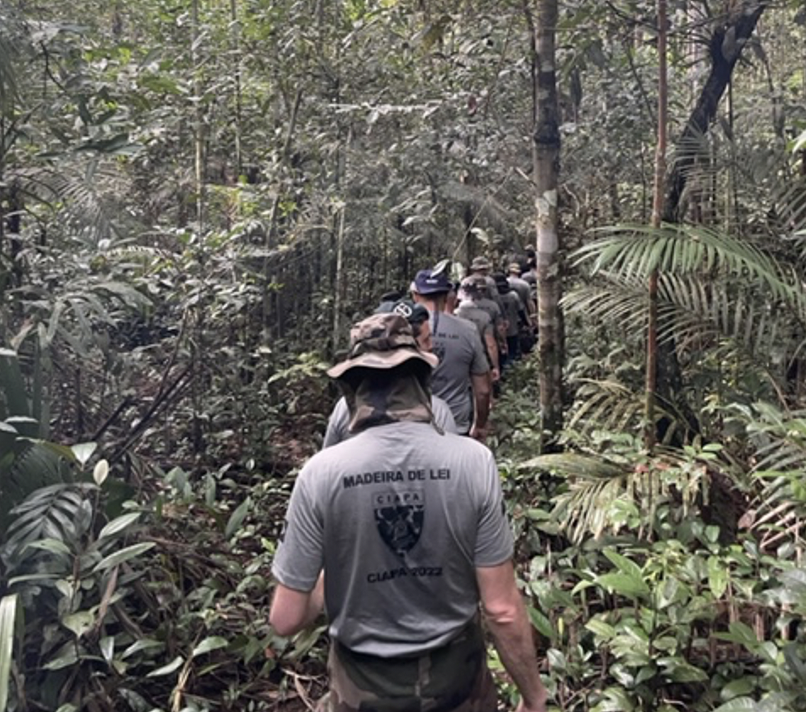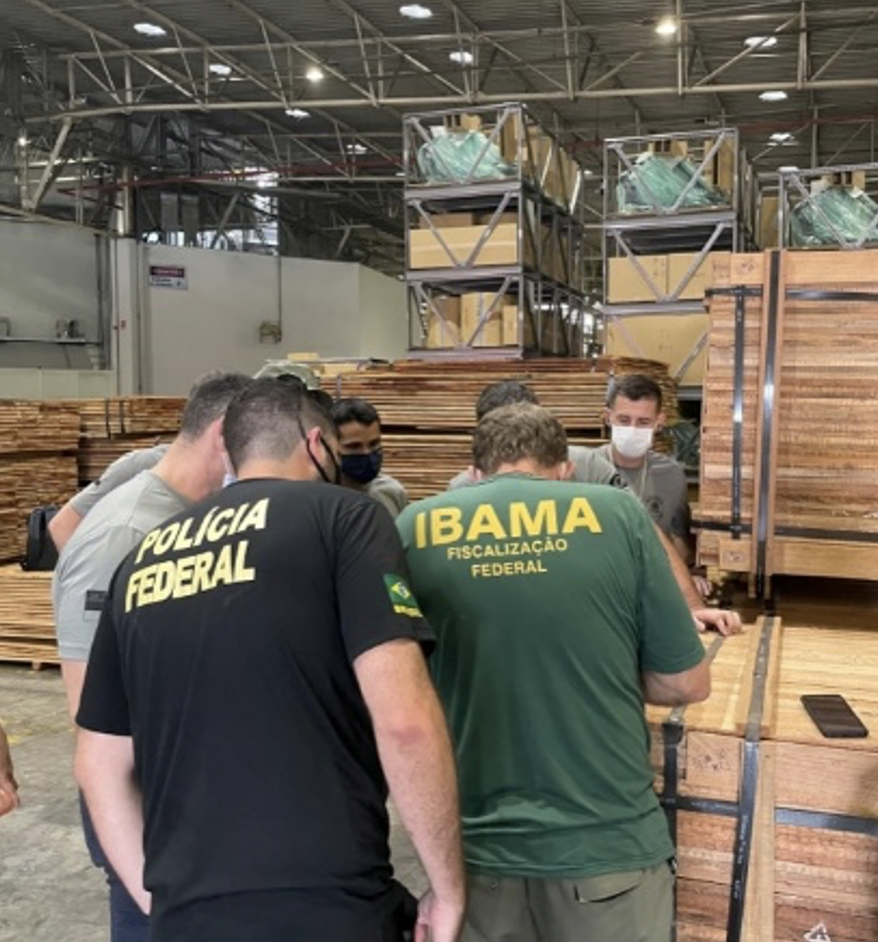
Brasília, 14 February 2022 - From 7-12 February, UNODC Brazil participated in a training workshop under the framework of the Brazilian Federal Police initiative “Hardwood Timber” (Madeira de Lei) on forest crime at the Center for Instruction and Adaptation for the Environmental Police (CIAPA) located in the heart of the Amazon Forest off the Negro River, Amazonas State.
The workshop, which aimed to strengthen a network of law enforcement and customs agents of importing and exporting countries of tropical timber in order to improve environmental governance, included instruction on timber control in port settings, identification of fraud in key documents that accompany timber shipments, timber species identification including advanced technologies involving deep learning for image recognition and law enforcement operations in the Brazilian Amazon.
Officials from UNODC’s Law Enforcement Assistance Programme to Reduce Tropical Deforestation (LEAP) and Combatting Transnational Conservation Crimes in the Amazon (CTCCA) were invited to provide additional expertise, strengthen awareness regarding the realities of Brazilian law enforcement and build networks for capacity building and support for authorities in both Latin America and Europe.
According to INTERPOL, organized crime groups earn up to 150 billion USD per year from illegal logging and timber trafficking. These crimes, which are often transnational in nature, not only erode the rule of law by encouraging systemic and widespread corruption but also contribute to increased greenhouse gases, deprive governments of crucial revenue and drastically reduce sustainable development opportunities. Forest crime is also intimately connected with trafficking of drugs and weapons and human rights abuses.


LEAP Initiative - UNODC’s Law Enforcement Assistance Programme to Reduce Tropical Deforestation (LEAP) is a partnership between UNODC, INTERPOL, and RHIPTO-Norwegian Center for Global Analysis. LEAP seeks to share knowledge and build global networks to combat illegal deforestation and related crimes in order to assist member states with law enforcement in key countries in Latin America and Southeast Asia.